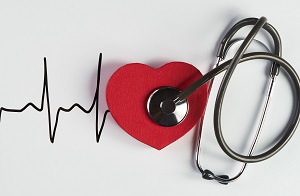Many people will have their first appointment with a cardiologist, who is a doctor who specialises in hearts, following a referral from their GP.
This could be because of a symptoms such as angina, an arrhythmia (an abnormal heart rhythm) or a family history of a heart problem such as an inherited heart condition like a cardiomyopathy.
Others will see a cardiologist for the first time after being admitted to hospital, either as an emergency like a heart attack, or as a planned admission for a procedure or test.
How often you see your cardiologist depends on your condition or the procedure or surgery that is planned, or has been performed. You may also be reviewed by other members of the hospital cardiology team, which includes other doctors (usually a registrar), specialist nurses and specialist pharmacists.
Want to get fit and healthy?
Sign up to our fortnightly Heart Matters newsletter to receive healthy recipes, new activity ideas, and expert tips for managing your health. Joining is free and takes 2 minutes.
I’d like to sign-up
The main reasons for seeing a cardiologist are:
- Your GP is concerned about your symptoms, for example chest pain, breathlessness or swelling of the ankles.
- Your GP has found an abnormality on an ECG (electrocardiogram), echo (echocardiogram), chest X-ray or blood test.
- Your GP has found an abnormality on a physical examination, for example, a heart murmur.
- Your GP has been informed that you have a significant family history of a heart condition that may need further investigation or tests.

Other reasons for being under the care of the cardiology team include:
- Check-ups for a persistent arrhythmia that may require medication changes or procedures such as cardioversion or ablation.
- Check-ups for high blood pressure that has not been controlled by medicines normally prescribed by a GP.
- Check-ups after certain procedures such as an angioplasty or an ablation.
- Monitoring of a condition that is currently stable but could worsen in time, such as heart valve disease.
- Check-ups after heart surgery, if the heart surgeon believes this to be necessary.
- Check-ups if you have been diagnosed with other heart conditions such as heart failure or congenital heart disease.
Although there are national guidelines on monitoring those with heart symptoms or conditions that the cardiology team can follow, it is important to know that these guidelines can be tailored to you.
The cardiology team will decide how often they need to see you based on your specific symptoms and condition, and how you are being affected personally.
Some NHS hospitals are now using a system called ‘Patient Initiated Follow Up’ (PIFU), where instead of routine follow-up appointments, you contact your cardiology team if you have signs or symptoms of illness. It is being used for people with arrhythmia, heart failure and mild to moderate heart valve disease.
Meet the expert
Julie Ward is a Senior Cardiac Nurse at the British Heart Foundation.
What to read next...










